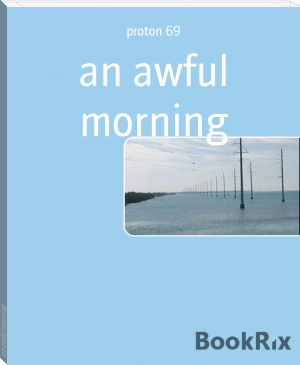Literary Lapses by Stephen Leacock (ebook reader online TXT) 📗

- Author: Stephen Leacock
Book online «Literary Lapses by Stephen Leacock (ebook reader online TXT) 📗». Author Stephen Leacock
To pay the interest on the mortgage, the choir of the church got up a sacred concert in the town hall.
To pay for the town hall, the Willing Workers' Guild held a social in the Sunday school. To pay the expenses of the social, the rector delivered a public lecture on "Italy and Her Past," illustrated by a magic lantern. To pay for the magic lantern, the curate and the ladies of the church got up some amateur theatricals.
Finally, to pay for the costumes for the theatricals, the rector felt it his duty to dispense with the curate.
So that is where the church stands just at present. What they chiefly want to do, is to raise enough money to buy a suitable gold watch as a testimonial to the curate. After that they hope to be able to do something for the Armenians. Meantime, of course, the Armenians, the ones right there in the town, are getting very troublesome. To begin with, there is the Armenian who rented the costumes for the theatricals: he has to be squared. Then there is the Armenian organ dealer, and the Armenian who owned the magic lantern. They want relief badly.
The most urgent case is that of the Armenian who holds the mortgage on the parsonage; indeed it is generally felt in the congregation, when the rector makes his impassioned appeals at the special services on behalf of the suffering cause, that it is to this man that he has special reference.
In the meanwhile the general public subscription is not getting along very fast; but the proprietor of the big saloon further down the street and the man with the short cigar that runs the Doogalville Midway Plaisance have been most liberal in their contributions.
A Study in Still Life.—The Country Hotel
The country hotel stands on the sunny side of Main Street. It has three entrances.
There is one in front which leads into the Bar. There is one at the side called the Ladies' Entrance which leads into the Bar from the side. There is also the Main Entrance which leads into the Bar through the Rotunda.
The Rotunda is the space between the door of the bar-room and the cigar-case.
In it is a desk and a book. In the book are written down the names of the guests, together with marks indicating the direction of the wind and the height of the barometer. It is here that the newly arrived guest waits until he has time to open the door leading to the Bar.
The bar-room forms the largest part of the hotel. It constitutes the hotel proper. To it are attached a series of bedrooms on the floor above, many of which contain beds.
The walls of the bar-room are perforated in all directions with trap-doors. Through one of these drinks are passed into the back sitting-room. Through others drinks are passed into the passages. Drinks are also passed through the floor and through the ceiling. Drinks once passed never return. The Proprietor stands in the doorway of the bar. He weighs two hundred pounds. His face is immovable as putty. He is drunk. He has been drunk for twelve years. It makes no difference to him. Behind the bar stands the Bar-tender. He wears wicker-sleeves, his hair is curled in a hook, and his name is Charlie.
Attached to the bar is a pneumatic beer-pump, by means of which the bar-tender can flood the bar with beer. Afterwards he wipes up the beer with a rag. By this means he polishes the bar. Some of the beer that is pumped up spills into glasses and has to be sold.
Behind the bar-tender is a mechanism called a cash-register, which, on being struck a powerful blow, rings a bell, sticks up a card marked NO SALE, and opens a till from which the bar-tender distributes money.
There is printed a tariff of drinks and prices on the wall.
It reads thus:
Beer . . . . . . . . . . . . 5 cents. Whisky. . . . . . . . . . 5 cents. Whisky and Soda. . . . . . . 5 cents. Beer and Soda . . . . . . 5 cents. Whisky and Beer and Soda . . 5 cents. Whisky and Eggs . . . . . 5 cents. Beer and Eggs . . . . . . 5 cents. Champagne. . . . . . . 5 cents. Cigars . . . . . . . . 5 cents. Cigars, extra fine . . . . . 5 cents.All calculations are made on this basis and are worked out to three places of decimals. Every seventh drink is on the house and is not followed by a distribution of money.
The bar-room closes at midnight, provided there are enough people in it. If there is not a quorum the proprietor waits for a better chance. A careful closing of the bar will often catch as many as twenty-five people. The bar is not opened again till seven o'clock in the morning; after that the people may go home. There are also, nowadays, Local Option Hotels. These contain only one entrance, leading directly into the bar.
An Experiment With Policeman Hogan
Mr. Scalper sits writing in the reporters' room of The Daily Eclipse. The paper has gone to press and he is alone; a wayward talented gentleman, this Mr. Scalper, and employed by The Eclipse as a delineator of character from handwriting. Any subscriber who forwards a specimen of his handwriting is treated to a prompt analysis of his character from Mr. Scalper's facile pen. The literary genius has a little pile of correspondence beside him, and is engaged in the practice of his art. Outside the night is dark and rainy. The clock on the City Hall marks the hour of two. In front of the newspaper office Policeman Hogan walks drearily up and down his beat. The damp misery of Hogan is intense. A belated gentleman in clerical attire, returning home from a bed of sickness, gives him a side-look of timid pity and shivers past. Hogan follows the retreating figure with his eye; then draws forth a notebook and sits down on the steps of The Eclipse building to write in the light of the gas lamp. Gentlemen of nocturnal habits have often wondered what it is that Policeman Hogan and his brethren write in their little books. Here are the words that are fashioned by the big fist of the policeman:
"Two o'clock. All is well. There is a light in Mr. Scalper's room above. The night is very wet and I am unhappy and cannot sleep—my fourth night of insomnia. Suspicious-looking individual just passed. Alas, how melancholy is my life! Will the dawn never break! Oh, moist, moist stone."
Mr. Scalper up above is writing





Comments (0)